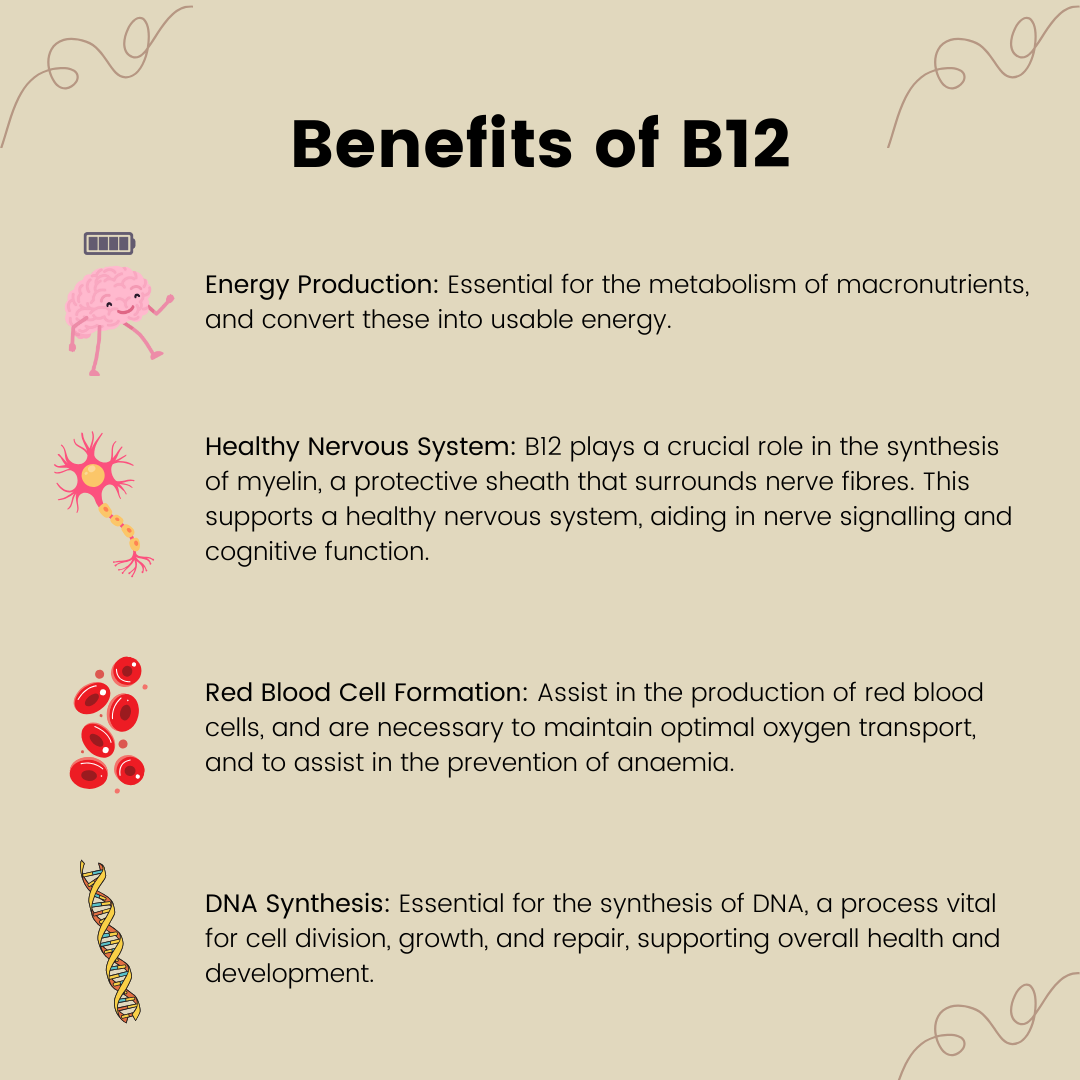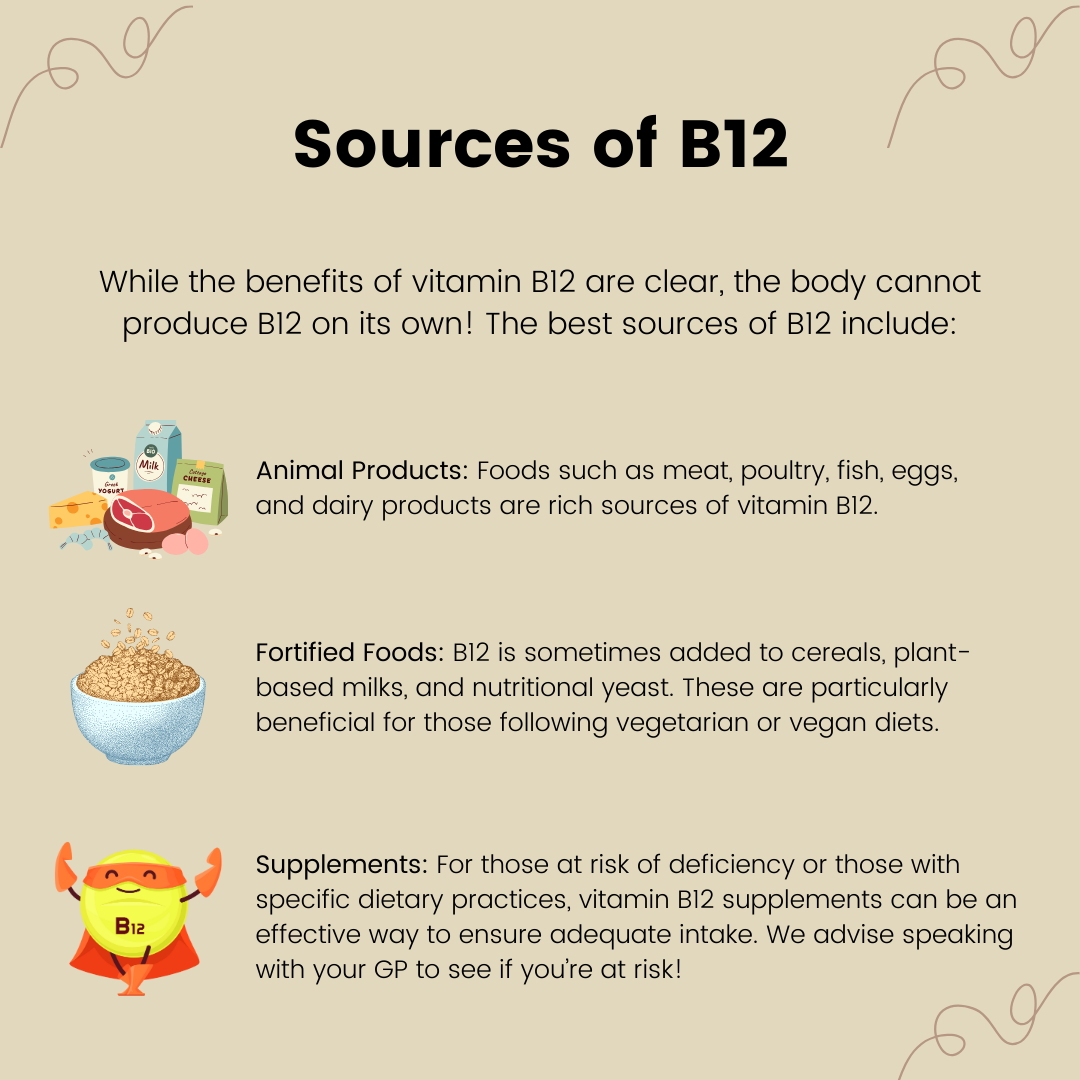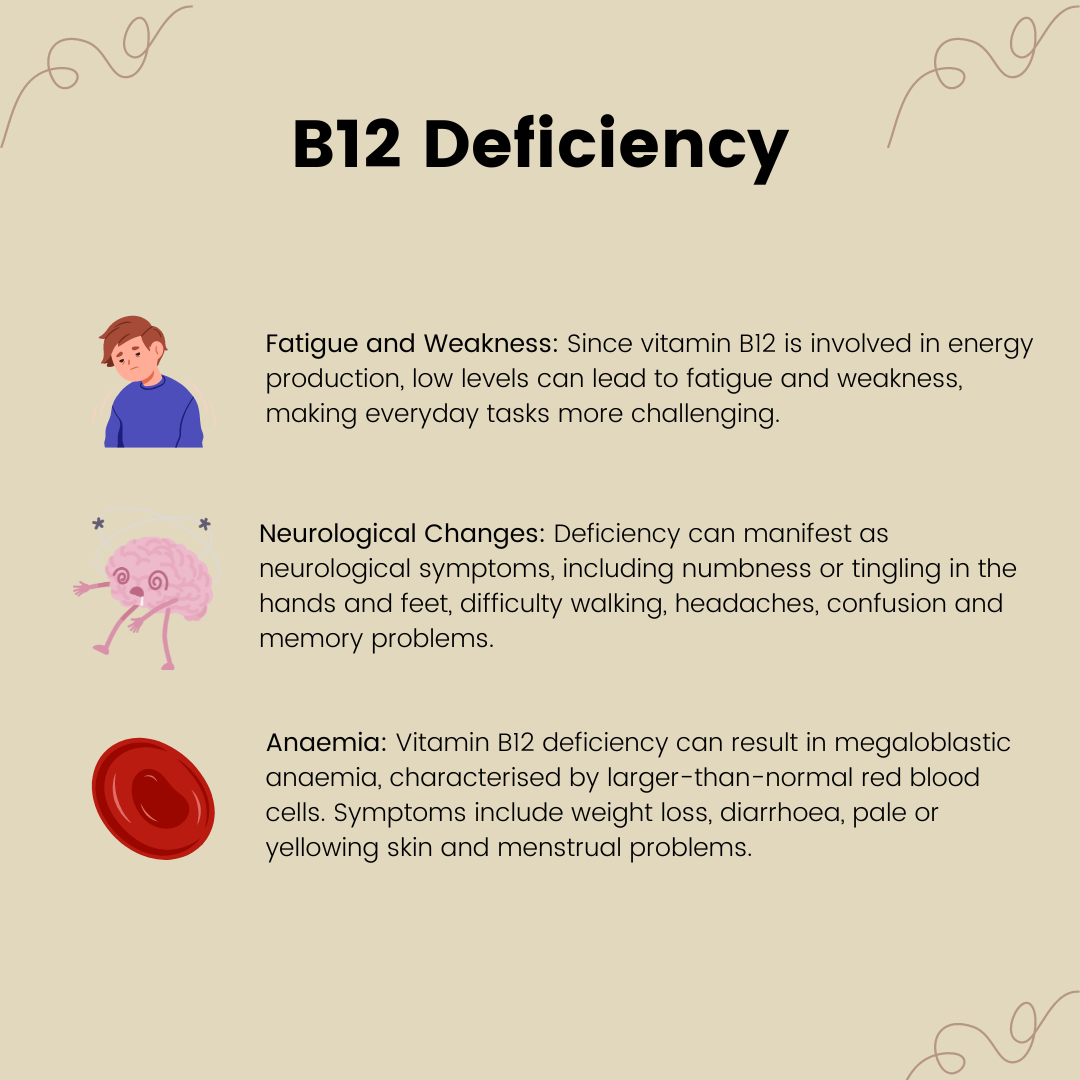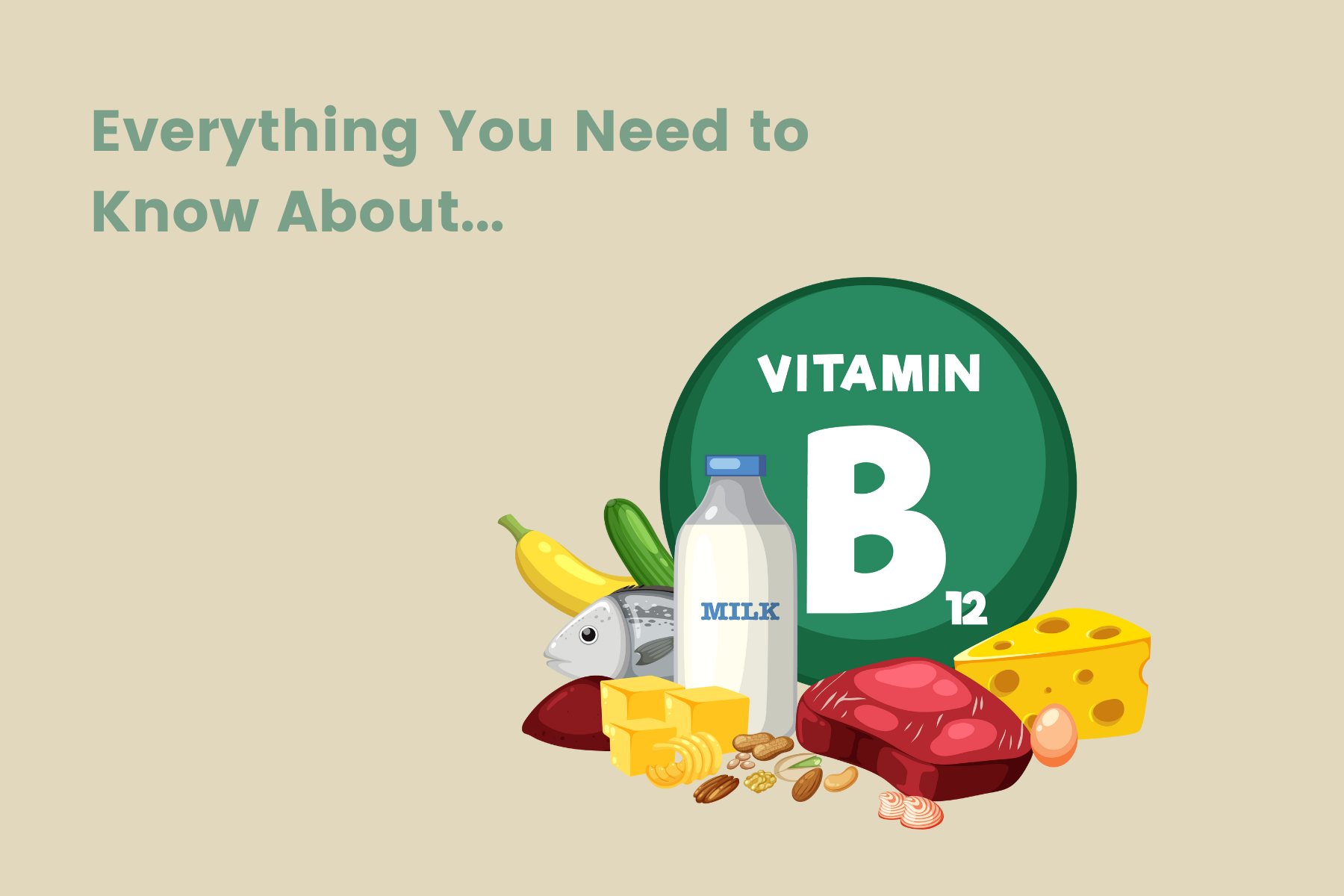The importance of various vitamins and minerals in maintaining overall health and well-being can not be overemphasised. Among these, one nutrient stands out for its crucial role in supporting numerous bodily functions: vitamin B12. Despite its significance, many individuals overlook the importance of this in their diets. In this post, we'll delve into the benefits of vitamin B12, explore its food sources, and discuss the signs and symptoms of deficiency.
The Benefits of Vitamin B12
Vitamin B12, also known as cobalamin, plays a vital role in the body's functioning, contributing to several key processes. Here are some of its notable benefits:

Sources of Vitamin B12
While the benefits of vitamin B12 are clear, the body cannot produce this nutrient on its own, necessitating dietary intake. Fortunately, vitamin B12 can be found in various animal-based and fortified foods. Some of the best sources include:

Signs and Symptoms of Deficiency
Despite the importance of vitamin B12, deficiency is not uncommon, especially among certain population groups. Some signs and symptoms of vitamin B12 deficiency include:

Many symptoms are not specific to B12 deficiency, especially anaemia, which can often cause the condition to go untested. For more symptoms of anaemia, see our blog post on Iron here!
If you have concerns about your vitamin B12 intake or experience symptoms of deficiency, consult with a healthcare professional or registered dietitian for personalised guidance and recommendations tailored to your individual needs. Your health is worth the investment, and vitamin B12 plays a significant role in ensuring your body functions at its best.



